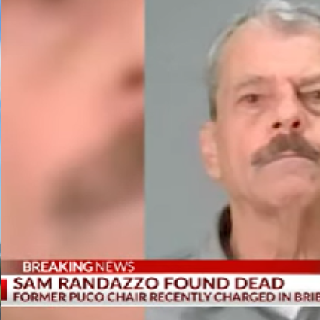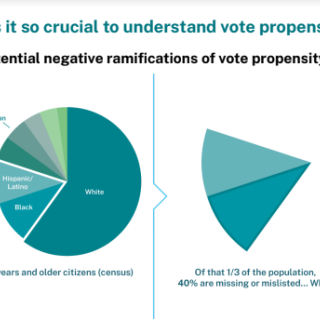Advertisement
Three members of the Mayor’s Safety Commission are speaking out about the lack of transparency, candor and trust within the Commission.
Janet Jackson, former City Attorney and governing Chair of the Commission is accused of running roughshod over the group’s ability to ask questions and to dialogue about the various issues plaguing the Columbus Police Department.
“At no point in these meetings were we allowed to address the real issues. Our voices were not heard.” said Tammy Fournier Al Saada, organizer for the People’s Justice Project.
Ironically, Mayor Andrew Ginther set up the Safety Commission to study and evaluate the work of the Columbus Police Department (CPD), and to restore public trust and legitimacy to his battered police force which has come under severe public criticism within the last few years. Police killings of unarmed citizens, several incidents of police brutality and charges of racism and sexism swirl around the CPD.
The other dissident members of the Commission are Rev. Jason Ridley, a westside pastor, and Tiffany White, who is on the ballot for Columbus City Council. Rev. Ridley said, “There was no chance to dialogue and ask questions both to those who presented expert testimony and even among ourselves. Judge Jackson would not allow questions by saying there would be time for questions later. But later never came. Our voices were silenced.”
While the Commission listened to hours of testimony from police experts on tactics and procedures, Columbus police officers were hanging around the proceedings seemingly to intimidate the Commission members. Several training videos were shared on the tactics of properly carrying out arrests. In all videos, the perpetrators were people of color being arrested.
The Commission set aside only one day for public testimony. Dozens of citizens came to City Hall to share their horror stories of police brutality and abuse, racism and intimidation from CPD officers. Every witness was given only three minutes to tell their stories and no Commission members were allowed by Chair Jackson to ask questions or do follow ups. “I went home that evening totally devastated and traumatized by what I heard,” said Tiffany White, a Linden area resident, “Peoples’ stories were awful to hear about police abuse. I could not sleep that night. I felt sad for these folks. It was disturbing.” Over four hours of testimony were taken.
Another crucial issue swept under the rug by Jackson were the 14 letters submitted anonymously by present CPD officers who have experienced blatant demoralizing racist and sexist treatment from their superiors or their peers. CPD Lt. Melissa McFadden submitted the letters on behalf of the officers to the Commission. She wrote: “The attached letters are from various Division personnel, writing as private citizens, that chose to remain anonymous for their well being. These are their words and perception of how they feel they are treated. The letters are from minorities, females and male whites that were courageous enough to place their thoughts in writing, even if they did so anonymously. Over the course of the next month, the Free Press will continue to reach out to Division personnel to ask them to express themselves in an effort to bring about real change.” They were not acted upon by the Chair.
“These officers risked a lot to speak out about these abuses. To have them ignored is disappointing and demoralizing. We wanted the Commission to consider them and to acknowledge that there is a real problem here not being addressed.” McFadden said. Jackson responded in an email back to her: “It should be noted that the anonymous testimony has been provided to Matrix Consulting for their review.” Matrix Consulting Group has conducted over 350 law enforcement agency studies throughout the U.S. and Canada.
The three members said that they had no participation in setting the agenda and were stymied and chastised by Chair Jackson for questioning her procedures. “She disrespected us,” said Fournier Al Saada, “Promises were made to the public and to the Commission that transparency was the goal. It was a broken promise. They will not acknowledge that there are real problems here.”
Excerpts from the anonymous letters:
“In fact, a few years ago some officers realized that we were not receiving the support we needed, and, so, they got together and attempted to implement an informal support group. However, when other officers found out, it was immediately mischaracterized as a "Pro-Black" group, and that Caucasian officers reportedly expressed concern that we were no longer going to back them up on calls for service. As a result, the group was dismantled and never made it out of the early stages of development. More troubling however, is that those high-ranking officials within the Division refuse to acknowledge this is an issue, yet they hold the very power to make the changes needed to make the Columbus Division of Police a better place for African Americans to work. … While the Division offers various training opportunities, African American officers very rarely are selected to take part. In fact, when it comes to training opportunities, the whole process can be best characterized as a "good old boy system." To be selected, an officer pretty much must know someone who will put a good word in on that officer's behalf. Once that officer is the beneficiary of that specialized training, he or she is placed in a better position of getting a specialized assignment i.e. DEA Task Force, Human Trafficking Task Force, etc. as they become available. Because we are constantly denied those training opportunities, we are not considered for the specialized assignments. … Another major area of concern is how we as African American officers are disciplined at a disproportional rate when compared to other officers. All to[o] often we are "nickel and dimed" for minor issues and complaints that are often overlooked or excused when committed by Caucasian officers. In no way do I feel that any officer should get away with violating rules in the workplace. However, race and ethnicity should never dictate whether the rules are enforced. In these times, "the good old boy system" seems to play out with African American officers being disciplined at a much higher rate when compared to Caucasian officers.” ~ Anonymous Officer
“Unfair treatment is the issue that this department suffers from the most. White Officers routinely get lesser discipline if any at all than black Officers. I quickly realized early in my career that there are Officers and supervisors that take advantage of their power and rank and often use that power and rank to try to eliminate or at the very least give minority Officers a difficult time. Time and time again even today I speak with minority Officers that truly feel that they are being attacked and singled out by certain Officers and/or supervisors on the department.” ~ Concerned officer
“I have witnessed female supervisors treated disrespectfully by subordinates and then get no support from their supervisors. I have seen it go to the point of undermining the female supervisor's authority and creating a culture within her unit that made it incredibly difficult for her to effectively supervise. I have seen female supervisors receive discipline in situations which their male counterparts do not I have seen some female officers and supervisors who do a good job be overlooked or expected to do more while others get preferential treatment because they flirt or go even further.” ~ Anonymous
“I am also aware of an African-American officer who contacted the Fraternal Order of Police regarding a concern with their chain of command. I witnessed that officer's sergeant inform them that the commander in their chain of command stated that if anyone were to contact the FOP on behalf of that officer, then discipline would be issued. That is clearly retaliation. I have not seen Caucasian officers treated in this same manner.” ~ Anonymous
“On the Columbus Division of Police, as a black officer, you are labelled as lazy if you are not aggressively proactive in areas of the city where there is a large population of blacks. It is 2019 and Columbus Division of Police is still, in my opinion, back in the 1960's. Recently, the Columbus Division of Police had a survey monkey which asked questions about racism on the Columbus Division of Police, 80 percent of black officers responded and admitted they have experienced racism on this department. Officers were randomly selected to give feedback in response to the survey. This was an open forum in which the black officers who were invited did not feel comfortable in responding in front of other officers from different ethnic backgrounds. It's easy for officers who are not black to say "I have not experienced
racism!" They don't, because they are not an officer of color. In the past, I have witnessed an officer call a elder male black a "boy." This incident was reported but nothing was done. I am personally tired of these incidents being swept under the rug. I can go on for hours about the sense of entitlement this department has over its black officers, but I won't. Thank you for wanting to hear my accounts of my experience with the Columbus Division of Police.” ~ Concerned officer
“Being a Division employee with over 30 years of service, I can truthfully say that the unfairness in punishment, along with favoritism, racism, and nepotism are at an all time high here at CPD. What's even sadder is that it's gotten so blatant around here that some of the people know they can do whatever and know for certain their punishment will be next to nothing and then smile about it. Punishment for misconduct should be the same for all. Not to mention the bullying that goes on for those who stand up for themselves or apply for certain jobs. If you apply for a position and they want someone else have it, they have a way of bringing discomfort your way. This practice continues and no one is ever punished. They always overlook qualified employees who have been there for years to promote, and instead, they bring friends and family in for these higher paying jobs and most of them have no police office experience. They rather bring a friend with no work experience or who's worked at Lowe's, Home Depot etc., instead of promoting someone with the experience.” ~ Concerned Employee
“Next issue is the fact that when minority officers stand up and report violations where they are the victims or witnesses they often become the target of other officers or they are blackballed and are denied opportunities because other non minority officers feel they cannot be trusted even though they've done the right thing.” ~ Anonymous
“A white sergeant who represented the Division is in trouble for child porn and you let him stay on the Division knowing he was guilty of child porn until he could retire and get full benefits. … You have several white officers that get just slap on the wrist, but if a minority officer does the same, he's suspended and sometimes terminated. … You have a white sergeant calling African Americans racial names and he gets his job back, business as usual.” ~ Anonymous
“Now, as a black man in America, I am under no illusions that white supremacy exist everywhere in society, but not in the Division of Police. After all, humans are humans, wherever they are. However, the division of police is a semi-military organization, I expected differently. I did not, however, expect the culture of the organization to be so permeated by such a belief system. A system so ingrained that those who may not willingly subscribe to these believes, are still, unwitting accomplices in perpetuating these racial inequities. Some white officers by sheer naïveté. That apparent discrimination, retaliation and harassment, is anything, but. Other black officers deny it or do not speak of it because of fear of retaliation or as their sacrifice for been spared a similar fate, temporarily.” ~ Anonymous
Officers and supervisors who are identified as using discriminatory practices need to be held accountable. If we are to be considered the best department, we need to ensure that officers regardless of their skin color, sexual orientation or gender are treated equitably in promotions, assignment transfers and promotions or we are doomed to repeat an ugly history of litigation and laws that demand what we seem be unable to do on our own. ~ Anonymous



